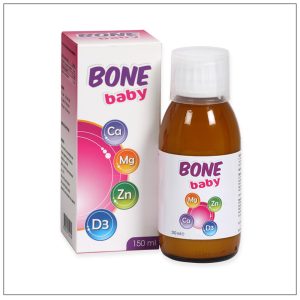Description
Acai Berry Select Pros
- Contains green tea extract, which contains catechins that have been shown to induce weight-loss related effects
- Contains acai berry extract, which has been associated with a number of health benefits
How Acai Berry Select Works
Acai Berry Select is claimed to contain acai berry extract, chromium, and green tea extract. Green tea extract has had a few studies demonstrating its potency for weight loss due to its high catechin concentration, particularly epigallocatechin gallate. The catechins may boost the metabolism of fat compared to other sources of energy, increase consumption of adipose tissue due to higher adiponectin levels, and decrease resting blood glucose levels. However, the other ingredients do not have any significant fat burning effects associated with them.
Acai Berry Extract
Acai berries have been claimed to induce a number of weight loss related effects, including increased metabolic rate and decreased appetite, depending on the supplement and manufacturer. However, these benefits have no clinical studies to suggest their legitimacy. The supposed health benefits of acai include anti-oxidant activity, due to its extremely high concentration of polyphenols; in tests with one of the most aggressive radicals, superoxide (peroxyl), acai was found to have the highest anti-oxidant activity of any fruit, along with milder activity against several other radicals.
Radicals are chemical species which have had electrons removed through unintended reactions; these species then attack tissue in the body, most dangerously DNA during replication, which creates chain-reactions of damage that can cause cells to mutate, possibly becoming cancerous. Anti-oxidants prevent the electron-removing reactions- known as ‘oxidation- from occurring. Furthermore, the anti-oxidants in acai berries have been shown to directly enter cells, making them very effective. Acai berries have also been shown to support immune functions. Whilst a healthy body is important for weight loss, as stated before, there is currently no evidence to support a correlation between acai consumption and reduced body-weight.
Chromium
Chromium has been linked to lowered glucose and better insulin tolerance; a 1997 paper examining this effect determined that there was a direct correlation between chromium intake, decreased cholesterol levels, increased insulin levels and decreased blood glucose levels. Chromium is usually taken, when supplemented, in its ‘picolinate’ form, a slight modification on raw chromium; when combined with other chemicals, chromium has been suggested to boost the production of energy by mitochondria, the ATP-synthesising organelles inside cells. Lipid metabolism has also been shown to increase due to these complexes.
Chromium has shown minor benefits to diabetics in some studies; one analysis, where type-2 diabetic sufferers supplemented chromium for over three months, noted that there was a mild but significant reduction in metabolic-syndrome markers, though the weight of the subjects was unaffected. However, there are no studies that directly link high chromium intake to increased weight loss; moreover, this has been associated with dangerous side-effects including liver damage, (though this has so far only been demonstrated in rats), and damage to DNA, though this requires very high concentrations.
Green tea extract
Green tea extract’s main active ingredient is epigallocatehin gallate, though it also contains other catechins which induce a variety of physiological effects. Epigallocatechin gallate inhibits enzymes associated with cell division, like DNA methyltransferase, and also inhibits fatty acid synthase, the enzyme that turns glucose into stored fat. Epigallocatechin gallate has been suggested to mimic insulin activity to reduce blood glucose levels, and may be able to improve endothelial function (the external cells on blood vessels), reduce blood pressure, and significantly suppress fat deposition and the concentration of adipogenic proteins.
The suppression of fat deposition has been investigated and is believed to be mediated through the suppression of genes that code for fatty-acid binding proteins and adipogenic proteins. Epigallocatechin gallate is also believed to prevent cell precursors from growing into adipocytes (fat cells), and to induce apoptosis in mature adipocytes. However, green tea without its catechins has also been shown inhibiting effects in lipid metabolism in the liver. Studies in mice revealed that four weeks of green tea supplementation led to reduced activity of fatty acid synthase and acetyl-coenzyme A carboxylase, the latter being essential in the formation of lipids. Green tea extract may therefore inhibit fat production through multiple mechanisms.







